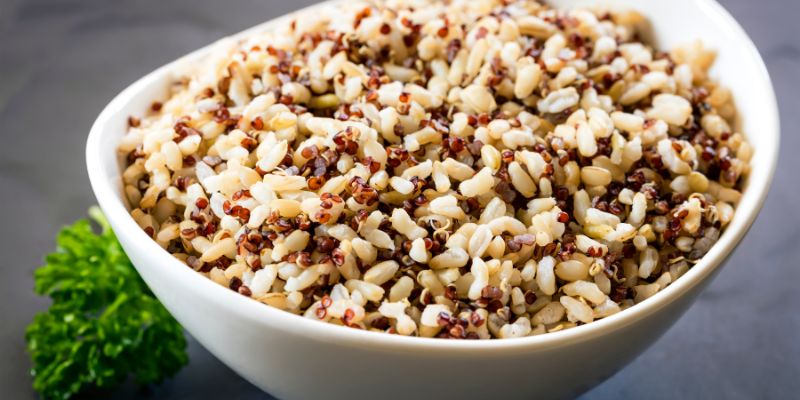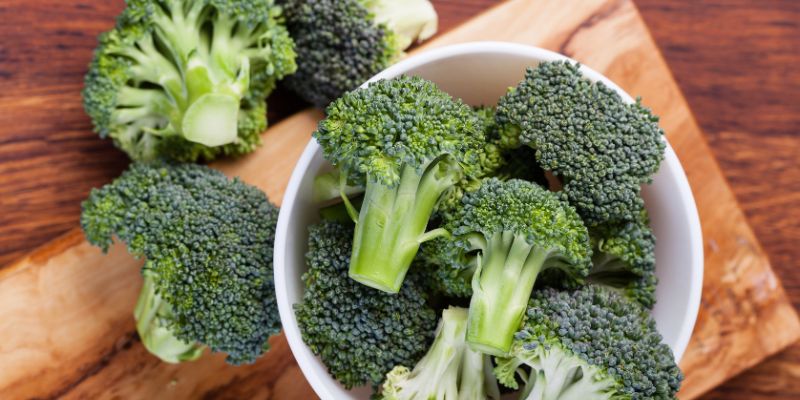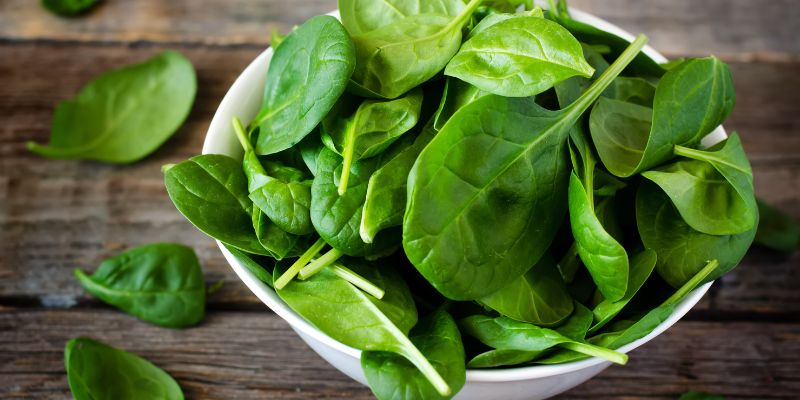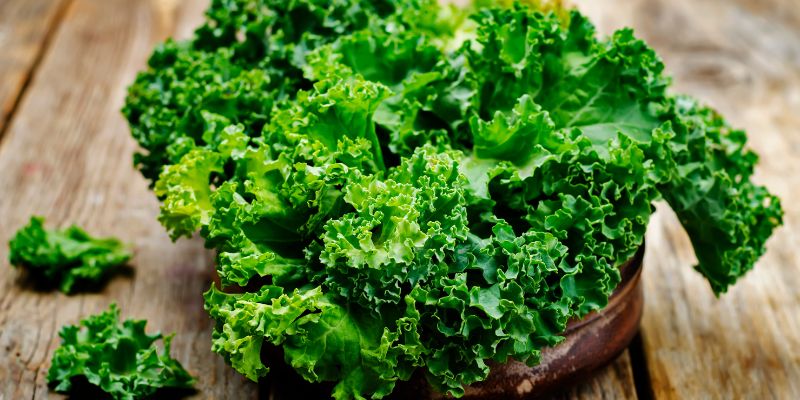Introduction
Welcome to the wonderful world of quinoa! In recent years, this ancient grain has taken the culinary scene by storm, captivating both chefs and health enthusiasts alike with its impressive nutritional profile and versatility in the kitchen. Hailing from the Andean regions of South America, quinoa has been a dietary staple for thousands of years, revered by indigenous cultures for its abundance of health benefits and adaptability to various dishes.
What makes quinoa stand out among grains is its exceptional balance of essential nutrients. Packed with protein, fiber, vitamins, and minerals, quinoa earns its reputation as a nutritional powerhouse, offering a complete source of plant-based protein and a range of micronutrients vital for overall well-being. Whether you’re striving for a balanced diet, exploring vegetarian or vegan lifestyles, or simply seeking healthier meal options, quinoa proves to be a valuable addition to any pantry.
But quinoa isn’t just nutritious—it’s also incredibly versatile. From hearty salads to wholesome breakfast bowls, quinoa seamlessly integrates into a myriad of recipes, adding a delightful nutty flavor and satisfying texture to every dish. Whether you’re a seasoned chef or a novice in the kitchen, quinoa’s ease of preparation and culinary adaptability make it a go-to ingredient for creating wholesome and delicious meals for you and your loved ones.

Find The Best around the world
Australia
Canada
France
Germany
India
Italy
Japan
Netherlands
Singapore
Spain
Sweden
UAE
UK
USA
Tips for choosing the right Quinoa for you
When it comes to selecting quinoa, navigating through the myriad of options available can be both exciting and overwhelming. As a savvy consumer, it’s essential to arm yourself with knowledge about the various types, certifications, and ingredients associated with this ancient grain. Let’s delve into the essential aspects to consider when purchasing quinoa to ensure you’re getting the best quality and nutritional value.
Types of Quinoa
Quinoa primarily comes in three main varieties: white, red, and black. Each type boasts its unique flavor, texture, and nutritional composition, offering diverse options to suit your culinary preferences and nutritional needs.
White Quinoa: With its mild flavor and fluffy texture, white quinoa is the most commonly found variety and tends to cook up lighter and softer compared to other types. It’s an excellent choice for dishes where you desire a neutral taste and tender texture.
Red Quinoa: Red quinoa features a slightly nuttier flavor and a firmer texture compared to white quinoa. Its vibrant color adds visual appeal to salads, pilafs, and other dishes, making it a popular choice among chefs and home cooks alike.
Black Quinoa: Black quinoa possesses a robust, earthy flavor and a slightly crunchy texture, making it a delightful addition to grain bowls, soups, and savory dishes. Its striking color provides a visually striking contrast in culinary creations.
Certifications
When purchasing quinoa, look for certifications that ensure ethical and sustainable production practices. Organic certification indicates that the quinoa has been grown without the use of synthetic pesticides, herbicides, or genetically modified organisms (GMOs). Fair Trade certification ensures that farmers receive fair wages and work in safe conditions, promoting social and economic empowerment within quinoa-producing communities.
Ingredients to Watch Out For
While quinoa itself is a wholesome and nutritious grain, it’s essential to be mindful of any added ingredients when purchasing pre-packaged quinoa products. Some packaged quinoa blends may contain added salt, preservatives, or artificial flavorings, which can detract from its health benefits and flavor profile. Opt for plain, unseasoned quinoa or carefully read labels to ensure minimal processing and additives.
Sources and Sourcing Practices
Quinoa is primarily cultivated in the Andean regions of South America, including Peru, Bolivia, and Ecuador, where it has been a dietary staple for centuries. When purchasing quinoa, consider the sourcing practices of the brand or supplier to support ethical and sustainable production methods. Look for brands that prioritize fair labor practices, environmental stewardship, and community development initiatives within quinoa-growing regions.
Packaging and Storage
Quinoa is commonly available in both bulk bins and pre-packaged containers. When purchasing quinoa from bulk bins, inspect the grains for signs of moisture, mold, or insect damage, and ensure that the bins are tightly sealed to maintain freshness. If opting for pre-packaged quinoa, check the packaging for any signs of damage or tampering, and ensure that the product is within its expiration date.
To preserve the freshness and quality of quinoa, store it in a cool, dry place away from direct sunlight and moisture. Transfer quinoa to an airtight container or resealable bag to prevent exposure to air and humidity, which can lead to rancidity and spoilage over time.
Benefits of using Quinoa
Quinoa isn’t just a trendy grain—it’s a nutritional powerhouse packed with a myriad of health benefits that can transform your diet and well-being. From its impressive protein content to its rich array of vitamins, minerals, and antioxidants, quinoa offers a multitude of reasons to incorporate it into your daily meals.
Complete Protein Source
One of the most notable health benefits of quinoa is its status as a complete protein source. Unlike most plant-based foods, which typically lack one or more essential amino acids, quinoa contains all nine essential amino acids that the body cannot produce on its own. This makes quinoa an excellent protein source for vegetarians, vegans, and individuals seeking to reduce their intake of animal products. By incorporating quinoa into your meals, you can support muscle repair and growth, maintain satiety, and promote overall health and vitality.
Rich in Fiber
Quinoa is also an excellent source of dietary fiber, which plays a crucial role in digestive health, weight management, and disease prevention. Fiber helps regulate bowel movements, prevent constipation, and promote the growth of beneficial gut bacteria. Additionally, fiber contributes to feelings of fullness and satiety, which can aid in weight management by reducing overall calorie intake and preventing overeating. By including quinoa in your diet, you can support digestive regularity, enhance nutrient absorption, and maintain optimal gut health.
Vitamins and Minerals
Quinoa is rich in vitamins and minerals, making it a nutrient-dense addition to any diet. It is particularly high in magnesium, iron, phosphorus, and manganese, which are essential for various physiological functions in the body. Magnesium plays a crucial role in muscle function, nerve transmission, and energy metabolism, while iron is vital for oxygen transport, immune function, and red blood cell production. Phosphorus contributes to bone health, tissue repair, and cellular growth, while manganese acts as a powerful antioxidant, protecting cells from oxidative damage and inflammation. By incorporating quinoa into your meals, you can boost your intake of these essential nutrients and support overall health and vitality.
Antioxidant Properties
Quinoa is rich in antioxidants, including flavonoids, polyphenols, and vitamin C and vitamin E, which help protect the body against oxidative stress and inflammation. Antioxidants neutralize harmful free radicals, which are unstable molecules that can damage cells and contribute to the development of chronic diseases such as heart attack, cancer, and Type 2 diabetes. By consuming quinoa regularly, you can support cellular health, reduce inflammation, and lower your risk of chronic disease. Additionally, the antioxidant properties of quinoa may help slow down the aging process and promote youthful skin, hair, and nails.
Gluten-Free and Suitable for Gluten Intolerance
Quinoa is naturally gluten-free, making it an excellent alternative to gluten-containing grains such as wheat, barley, and rye for individuals with celiac disease or gluten intolerance. Celiac disease is an autoimmune condition characterized by an adverse reaction to gluten, a protein found in certain grains. Consuming gluten-containing foods can trigger inflammation and damage to the small intestine in individuals with celiac disease, leading to digestive discomfort, nutrient deficiencies, and other
Do you represent a health, nutrition, beauty, or fitness brand?
Share your brand story, and its philosophy with our millions of readers looking for the highest quality products for their well-being. We understand that your products cater to the unique needs of an individual; here’s your opportunity to share the purpose and unique value proposition of your products that you’ve so caringly created for their well-being.
Share your brand story
Are you a health, nutrition, beauty or fitness expert?
Inviting all health, fitness, beauty, and wellness experts from around the world to join Zotezo, the ultimate trust commerce platform, and empower millions to make the right decisions for their wellbeing. Share your knowledge, review the highest quality products, and provide valuable insights to our engaged audience. Together, let's create a healthier, happier world!
Join our expert advisory board
Conclusion
In conclusion, quinoa stands as a remarkable grain that has earned its place as a staple in modern diets for a multitude of reasons. Its impressive nutritional profile, culinary versatility, and numerous health benefits make it a valuable addition to any meal plan. From its status as a complete protein source to its rich array of vitamins, minerals, and antioxidants, quinoa offers a wide range of nutrients that support overall health and well-being. Whether you’re looking to boost your protein intake, enhance your fiber intake, or simply explore new flavors and textures in your cooking, quinoa provides a delicious and nutritious option that caters to diverse dietary preferences and needs.
Furthermore, quinoa’s gluten-free status makes it an excellent choice for individuals with celiac disease or gluten intolerance, offering a safe and versatile alternative to gluten-containing grains. Its ability to support weight management, promote heart health, and reduce the risk of chronic disease underscores its importance as a functional food that nourishes the body and nurtures long-term health.
As we continue to explore the culinary landscape and seek out wholesome, nutrient-dense foods, quinoa remains a shining example of nature’s bounty—a grain that not only sustains us but also delights our taste buds and nourishes our bodies from the inside out. So whether you’re tossing it into salads, stirring it into soups, or enjoying it as a hearty side dish, quinoa invites you to savor its myriad flavors and embrace its abundant health benefits with every mouthful.




